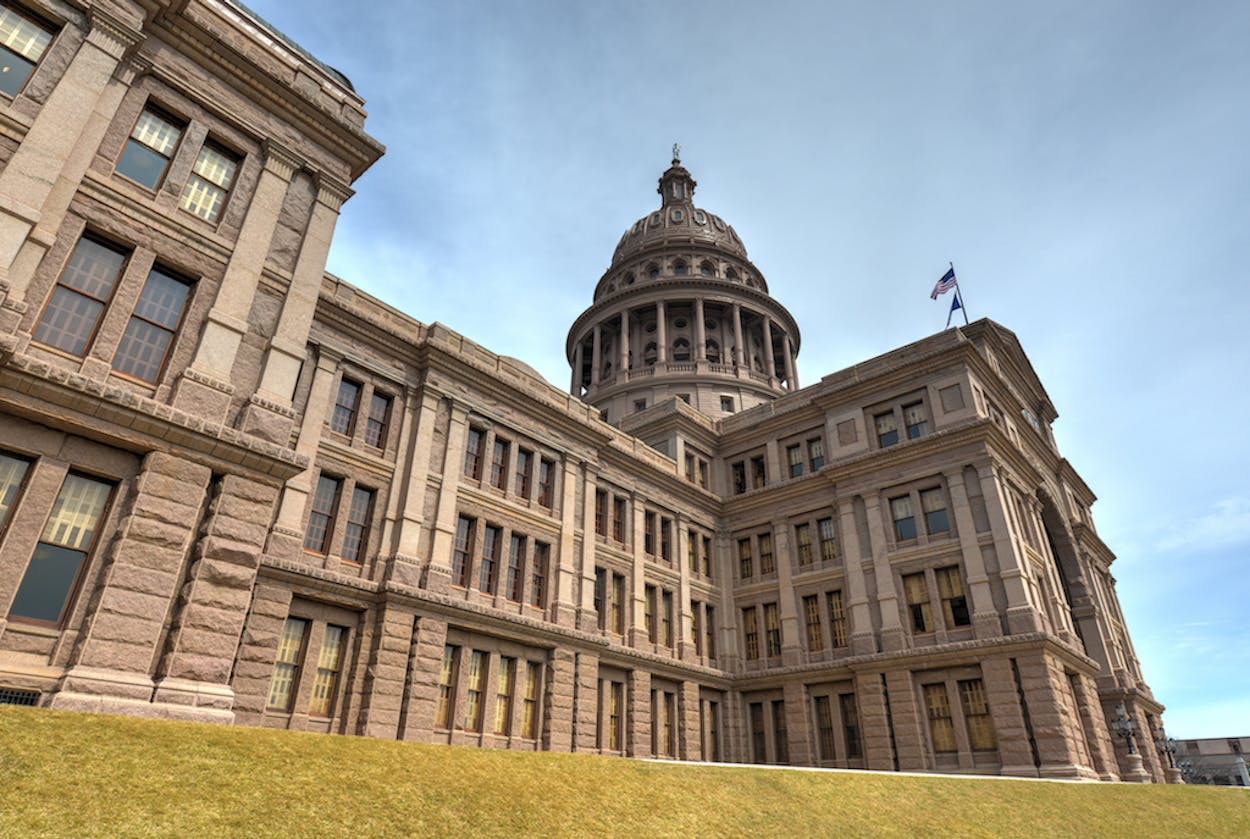Texas law enforcement officials stood alongside lawmakers, public officials, and advocates for sexual assault victims on Tuesday afternoon to speak out against Senate Bill 3, better known as the bathroom bill.
Governor Abbott’s office released a statement before the press conference saying that the governor’s call for “privacy protection legislation” had “growing support,” rounding up statements from groups such as Texas Values, Concerned Women for America of Texas, and Southern Baptists of Texas Convention. In the statement, Tim Lambert, president of the Texas Home School Coalition, wrote, “Our position on policies forcing boys and girls to use the same shower rooms and locker rooms are no exception. These policies impair a parent’s ability to protect their child from compromising and unsafe situations.”
But many advocates deny any widespread occurrences of these “unsafe situations” related to bathroom use by transgender people. To an audience of mostly reporters and camera crews on Tuesday, Austin Police Chief Brian Manley highlighted the lack of recorded instances of men entering women’s bathrooms—one of the main possible scenarios that could be prevented with the bill’s passage, according to lawmakers in favor of the legislation—and the pre-existing laws meant to address those situations. “This bill in fact will make the job of law enforcement more difficult,” Manley said. “If a bill like this were to be passed, that would pull police officers’ time away from combatting violent crime into enforcing a bathroom bill, it makes communities less safe. It is time not spent combatting crime. Time not spent ensuring community safety.”
But it isn’t just a time issue for law enforcement. Art Acevedo, the current Houston police chief and former police chief of Austin closed the press conference with a warning that the bill will cause certain people to feel “emboldened” to discriminate, adding that people might feel compelled to “vigilante justice” when it comes to policing who goes into which restroom. “In a few short years, we have gone from a state that was always known for its hospitality, its love for strangers, its love for neighbors, to a state where we paint people with broad brushes,” Acevedo said. “We’re demonizing people based on immigration, based on sexual orientation, based on skin color, nation of origin. That’s not the Texas that I fell in love with.”
Although law enforcement had the strongest presence at the press conference, advocates for survivors of sexual assault also spoke out in opposition. Annette Burrhus-Clay, executive director of the Texas Association Against Sexual Assault, called for solutions “based on evidence, not on rhetoric” and stated that in her almost forty years of experience working with survivors of sexual assault, she has yet to hear any instance of a woman or child being targeted in a bathroom or locker room by a man posing as a woman. Lavinia Masters, an advocate and survivor of sexual assault, additionally urged lawmakers to focus their efforts on the “ridiculous” amount of backlogged rape kits in the state.
Introducing himself as “one of those lawmakers that likes to listen to the experts” when making policy decisions, Representative Joe Moody said that during the special session he’d work to convince his colleagues to oppose the bill. In his statement, Moody, who previously worked as a prosecutor in El Paso, read statistics regarding the mistreatment, harassment, and assault that transgender children face and committed to “try and restore sanity in this conversation.”
Despite protestations from law enforcement, the Texas Senate passed the bill in a 21-10 vote after an eight hour debate. The bathroom bill will now head to the House for consideration, where it’s uncertain if the guidance from law enforcement and advocates will again fall on deaf ears.






